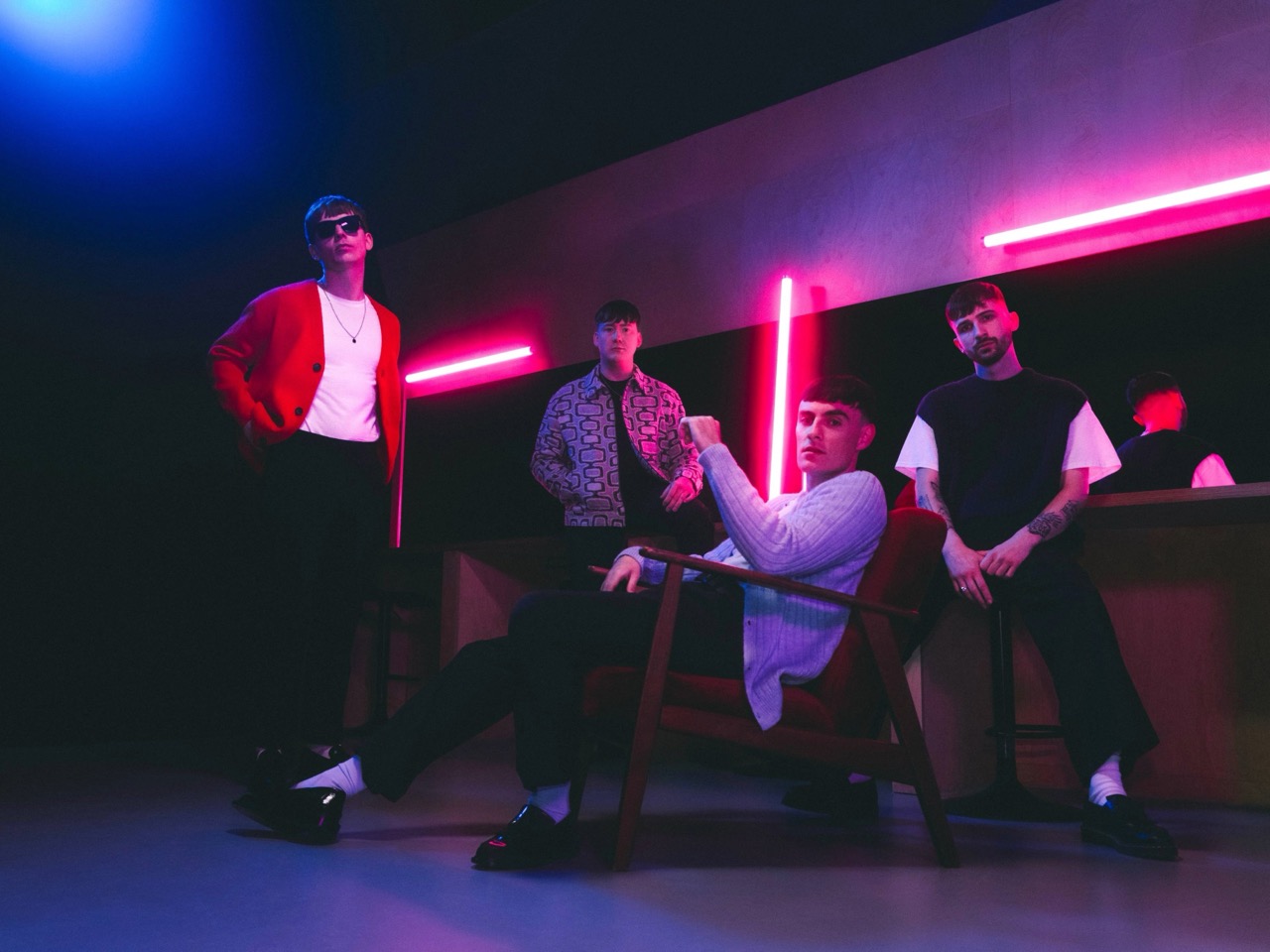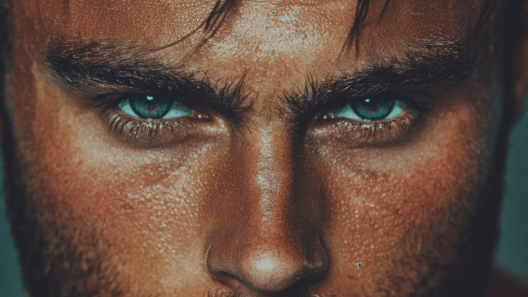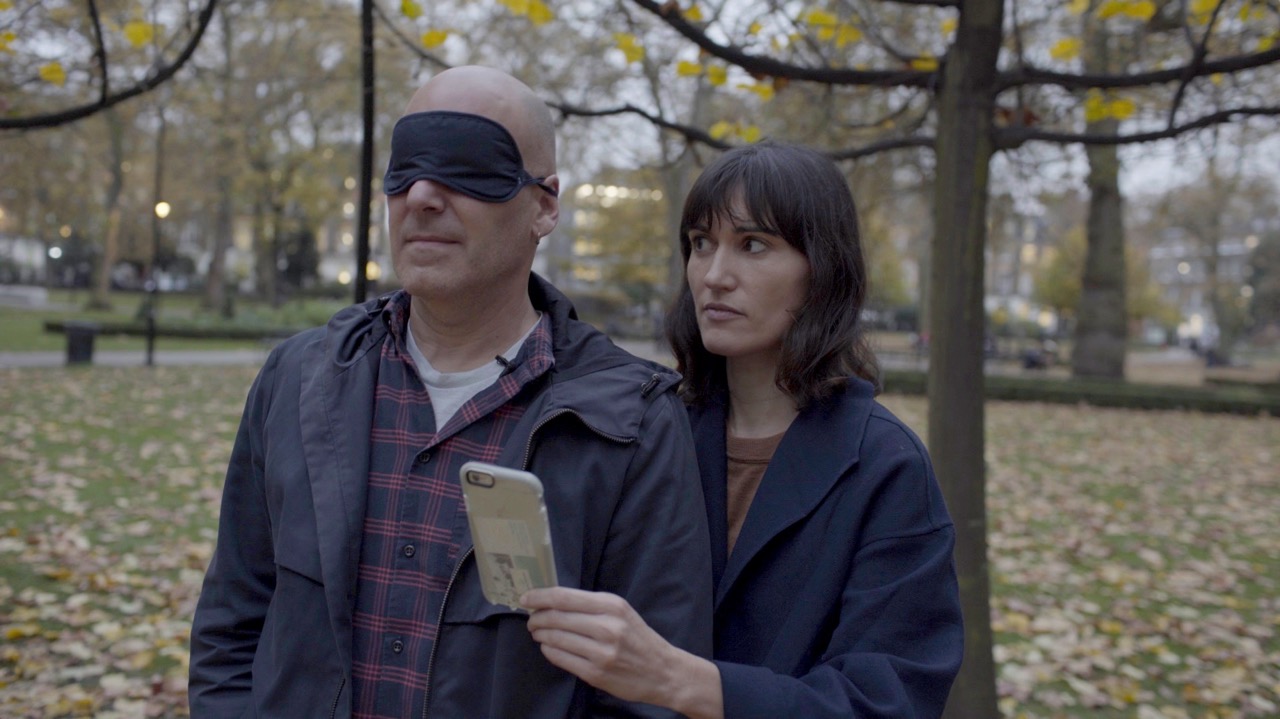What happens when your husband decides to become a cyborg? For filmmaker Susanna Cappellaro, this wasn’t a sci-fi fantasy but a real-life transformation she captured in her deeply personal documentary, My Husband, The Cyborg. In this interview, she shares the creative process, the emotional challenges, and what it really means to navigate love in an era where technology is rapidly reshaping human identity.
Could you share the creative inspiration behind “My Husband, The Cyborg” and what motivated you to explore the intersection of marriage and advanced technology through such a personal lens?
It all happened rather spontaneously. It was 2016, I was not working as an actress and feeling quite stressed about it. One afternoon Scott blurted out that he wanted to be a cyborg, to which I responded “what is a cyborg?!’. He explained. I remember feeling perplexed and confused about his plans, however I was also doing a lot of thinking about what kind of stories we can tell when all of us can and do tell stories these days. We are overwhelmed by the quantity of content we are presented with and I started to ponder what one can even say anymore that is unique. Well, the natural conclusion is that our own lives are the most unique thing we have and mine was about to become rather particular, so I decided to start recording the events. At first I borrowed a camera from a friend but I realised that to film with my phone would have allowed me immediacy and spontaneity and also for a very unfiltered end result. We are all used to watching content on social media and it is often filmed with phones. I like how we connect to it in a more intimate way. As I was about to record the events of my life and my marriage I wanted to be as unfiltered as possible to allow for as much authenticity as I could.
How did you approach documenting Scott’s journey with the North Sense implant, and what challenges did you face in capturing such an intimate transformation on film?
I previously worked as a journalist. I used to interview musicians, filmmakers and writers. I strived to maintain a degree of neutrality and not let my judgment cloud the portrayal of the artist. At the beginning I tried my best to film Scott the same way, however my own emotions made an appearance and I then tried to balance the two. Someone wrote an article recently that made me think a lot. He mentioned that I was so focused on filming Scott losing himself in the technology that I lost myself instead. I did not see that at the time, but it made me reflect on how, no matter how hard we try to keep an open mind, our own feelings will inform our storytelling. Without realising it at the moment, that was one challenge. The other one was that Scott wasn’t so thrilled with me taking the phone out on all the most intimate moments he had, of pain or discovery. He was very gracious to let me go on with it anyway. I guess he trusted me, for which I feel very grateful! To him the experiment was very private and he is a very private person in life so it was hard for him to let everyone else in too.
The film blends moments of humor with profound questions about identity and love. How did you strike that balance while ensuring the story remained both entertaining and thought-provoking?
This question gives me great joy! I love that you could see the humorous moments in it. The topic is so new for some viewers that as they try to make sense of what is going on they miss out on the lighthearted part. I had two great editors who helped to strike the balance: Maya Maffioli and Susanna Scarpa. I have been so lucky that Maya agreed to work on the film and then brought Susanna along. They really understood me and what I wished to flesh out from the many, many, many hours of material I filmed. We tried to make a film that resembled life, or at least what we try and make of it. I find that keeping a sense of humour throughout our lives helps a great deal and I really enjoy quiet and thoughtful moments too. Being that this a documentary on what was happening around me it was very important that both aspects would be present. Self reflection and a little sarcasm dotted with some laughter. I remember someone suggesting it should be a film just about technology and to put more of it in, but that is not what I was trying to communicate. I wanted to take viewers on my personal journey and try and be really true to who I am. As I filmed I had no idea what would have happened and just went along with the changes along the way.
Your documentary reveals two contrasting perspectives—Scott’s embrace of technology and your own reservations. How did you navigate these conflicting viewpoints during the filmmaking process?
Well, at times it wasn’t so easy. I tried to keep an open mind and to learn about things I didn’t know about and was not naturally interested in. However, at times I was a bit dismissive and, rightly so, Scott would feel a bit hurt by it. Other times Scott was so focused on his intents and his experiment that I felt left out of it, and then it was I who would feel hurt. We are both very respectful of each other and my starting point is that you should never tell anyone what they should or shouldn’t do (and so is his, we give each other immense freedom). I followed along and tried to learn. In the end it paid off as I understand much better the fundamental importance of technology, the role it has in our lives and how it can impact our future as humans.

In an era where technology is rapidly reshaping our lives, what message do you hope audiences take away about the future of human relationships and self-identity?
There are a few messages that I hope can come through. I hope my film can invite some reflection on how technology is already impacting our lives, in good and bad. For example, when mobile phones were a novelty it was impossible to have dinner with friends without constant interruptions. Most people learnt how to regulate phone use so that it does not interfere with our interpersonal relationships, but some may still have a way to go :). I also hope the film may invite us to reflect on how we are dealing with our own obsessions, technological or not. The other thing I hope for, which is the most important to me, is that “analogue” people like me may feel curious to investigate the significance that technology has and will have in our lives. The curve is exponential and it is rising fast. I was so lucky to meet Anders Sandberg at the Future of Humanity Institute at Oxford University, where they used to study how to ensure the survival of our species. Needless to say, one of the threats to the survival of humans is AI. So, as Scott says in the film : “We spend all of our time and resources to make machines better, why not spend time and money to make humans better?” (more or less his quote haha)
The atmospheric soundtrack by Sune Rose Wagner adds a unique emotional layer to the film. Could you discuss how you chose the music and its role in enhancing the overall narrative?
Sune is very special to me. Not only was he there the night I met Scott at the MTV Music Awards in Rome in 2004 (I used to work at MTV back then) and shared our first date – which wasn’t exactly a date as it was four of us really and no one had romantic ideas yet – but he is also one of my favourite artists. I love his depth of thinking and introspection which reflects in his songs and sounds and I love how he sees the world, he doesn’t skim on the surface of things, he dives deep. I think he was able to perfectly encapsulate the weight of the uncertain path of the future of humans, the humorous tones of the film and the intimacy of the storytelling. I couldn’t have wished for anything else.
” My Husband, The Cyborg” is both a modern love story and a reflection on technological evolution. How do you think the fusion of these elements challenges traditional notions of romance and connection?
I must admit I have never been much of a romantic, I am more of a realist and prefer to see things in their entirety, including relationships. I have always thought that the traditional concept of romance is a bit ambitious (and dated), how can you forgo who you are to please someone else? It is unsustainable past the teenage years. This said you could substitute the North Sense with a newspaper, or the sport pages, or anything that captures the full attention of just one half of the couple. In the past it would have been something more tangible. I think human behaviour is still the same, it is just the technology that changes, from paper to virtual reality for example. As we move forward we should all pay attention to the way we use technology and how it affects how we relate to anyone, romantic or not :). Be it a newspaper or a VR headset it is important to understand when we are putting up a fence, and in the future there will be a wider choice of fences (I hope I am making sense!)
On a personal level, what was the most surprising or enlightening lesson you discovered about yourself and your relationship while making this documentary?
The most surprising thing I learnt about a month ago when I was rewatching the film after a long time. In the making of the film I, of course, thought I was being fair, honest , understanding and supportive, but watching back I realised I was also dismissive. It made me reflect a lot about how we cannot help but see life, people and situations through the lens of our own selves and it can be incredibly hard to be balanced no matter how hard one tries. It brings me back to a couple of questions I often ponder on “What is ‘The Truth’?” “Does ‘The Truth’ exist?”






